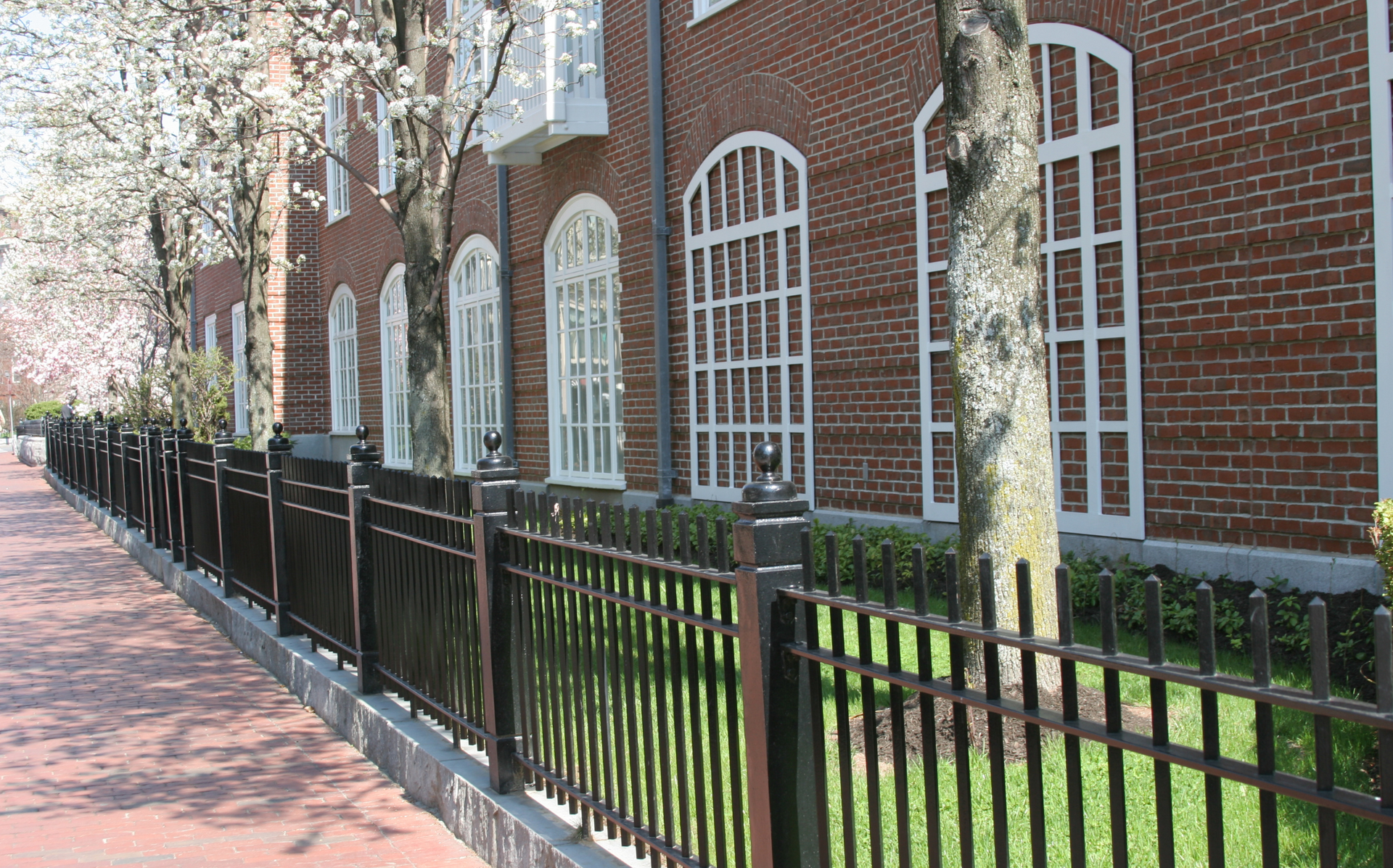Can you live on campus all 4 years at USC?

When students consider attending the University of Southern California, one of the most common questions they ask is whether they can live on campus for all four years. The answer is layered. USC has a well-defined housing policy that provides structure to students' living arrangements throughout their undergraduate experience. While the university offers an enriching residential life experience, it does not guarantee on-campus housing for all four years. Instead, USC focuses on supporting students during their critical transition into college life, particularly during the first half of their undergraduate journey.
The 2-Year Guarantee Explained
At USC, undergraduate students who are admitted as freshmen are guaranteed university housing for their first two years. This guarantee is intended to provide incoming students with a stable and immersive residential experience as they adjust to college life. During this time, students often live in traditional dormitories or university-owned apartment complexes located either directly on campus or in close proximity to it.
The goal is to foster a strong sense of community and help students build friendships, develop academic routines, and access on-campus resources with ease. These first two years form a foundation for many students—both academically and socially—as they grow into independent college adults. From residence halls like McCarthy Honors College to more suite-style accommodations, the first two years offer a structured yet engaging living experience under the umbrella of university-managed housing.
What Happens After Year 2?
After completing their sophomore year, students are no longer automatically guaranteed housing at USC. Instead, they must participate in a university housing lottery system, where available spots are assigned based on a random draw and application timing. Juniors and seniors typically receive lower priority in this process, which means they are less likely to secure spots in USC-owned housing compared to freshmen and sophomores.
As a result, many upperclassmen begin to explore off-campus housing options or USC-affiliated properties located near campus. While some students are successful in obtaining on-campus housing through the lottery, the limited availability means it's essential to have a backup plan. The university does make efforts to accommodate as many students as possible, and in some years, all who requested housing were placed. However, because these outcomes can vary from year to year, students must be proactive in planning where they will live for their third and fourth years.
Living On Campus All Four Years—Is It Possible?
While USC officially guarantees on-campus housing for only the first two years of undergraduate study, many students wonder if it’s possible to live on campus all four years. The answer is yes—it is possible, but not always straightforward. Students who want to live on campus for their junior and senior years must be prepared to navigate the housing lottery system and consider a broader definition of what “on campus” living entails. The feasibility of staying in USC housing for all four years depends largely on availability, flexibility, and planning ahead.
For those who are determined to remain in USC housing beyond sophomore year, options exist. The university continues to house a number of upperclassmen in various residential communities, though these opportunities are limited and not guaranteed. Some students are successful year after year in securing USC housing, whether through persistence, good lottery luck, or early applications.
Others may choose to live in USC-owned buildings that are technically off the main campus but still considered part of university housing. These alternatives give students a campus-connected lifestyle, even if they aren’t living in traditional dorms.
The Housing Lottery for Upperclassmen
After completing their second year, students who wish to stay in USC housing must participate in the university’s housing lottery. This process involves submitting a housing application during a specific window and receiving a random lottery number that determines the order in which housing choices are offered. Juniors and seniors receive lower priority in this system compared to freshmen and sophomores, which makes the chances of securing a preferred space more competitive.
Despite these challenges, many upperclassmen do end up getting a spot. In some academic years, USC has even been able to accommodate all students who applied for housing, leaving no waitlist at all. However, that level of availability can vary from year to year, depending on total demand and how many students opt for off-campus living.
The key is to plan early and consider backup options in case a lottery assignment does not come through. Some students accept whatever space is offered initially and then apply for room swaps later in the year to better suit their needs. With persistence and adaptability, many students manage to live in USC housing throughout their entire college career.
Alternative "On-Campus" Housing Options
For students who want to stay close to USC and maintain a connection with university-managed properties, there are several housing options that fall under the USC housing umbrella but are not traditional residence halls. Buildings like Cardinal Gardens, Century Apartments, and other USC-owned complexes are located just off campus and primarily house juniors, seniors, and graduate students. While these buildings may lack the communal feel of freshman dorms, they often provide more independence, including private bedrooms, full kitchens, and apartment-style living.
Although technically off campus, these locations are managed by USC Housing and still provide access to university maintenance, security, and student services. They’re situated within walking or biking distance from class buildings, libraries, and student centers, giving students the convenience and safety of being close to campus without needing to rent from third-party landlords.
These options blur the line between “on” and “off” campus and are a popular choice for upperclassmen who want a bit more autonomy while still benefiting from the structure and support of university housing. For many students, living in these buildings feels like a natural transition from dorm life to more independent college living, without fully stepping away from the USC housing system.
Off-Campus Housing vs. USC Housing
As students progress through their academic journey at the University of Southern California, many find themselves at a crossroads when it comes to housing. While some continue to pursue university-managed housing through the lottery system, others decide to venture into the vibrant world of off-campus living.
The neighborhoods surrounding USC are filled with apartment complexes, student homes, and housing managed by private companies that cater specifically to students. For juniors and seniors who want more flexibility, off-campus housing presents a popular and often practical alternative to USC-owned residences.
Transitioning to off-campus housing doesn’t mean disconnecting from the USC community. In fact, many students live just a few blocks from campus, and social life, extracurricular activities, and classes are still easily accessible. Choosing where and how to live becomes a reflection of students’ priorities—whether they’re looking for more personal space, a quieter environment, or a cost-effective living arrangement.
Advantages of Moving Off Campus
One of the biggest draws of off-campus living is the increased freedom it offers. Unlike university housing, which often comes with rules such as quiet hours, guest limits, or shared facilities, off-campus apartments and houses usually allow students more autonomy. This includes the freedom to choose your roommates, decorate your space, cook your own meals, and have guests over without the oversight of residential assistants. For many students, this shift feels like a natural progression toward adult independence.
Another major benefit is space. Off-campus housing often provides larger living areas, private bedrooms, and full kitchens—amenities that can be hard to come by in traditional dorms. In addition to more room, the price of off-campus units can be significantly lower depending on location and demand.
Things to Consider Before Moving Off Campus
While the appeal of off-campus housing is strong, there are several important factors students should consider before making the move. One of the most crucial is location. Staying within walking or biking distance of campus can make a significant difference in daily convenience, especially for students with busy schedules. Areas north and west of campus are popular, though houses north of campus tend to be more expensive due to their livelier student atmosphere.
Safety is another top concern. Students are strongly encouraged to live within the USC Department of Public Safety (DPS) Patrol Zone and the boundaries of the USC Free Lyft Program. These areas are monitored more closely by campus security, and the rideshare program offers a safe way to get home at night.
Additionally, many off-campus properties do not post their full availability or rental terms online, requiring students to contact leasing agents directly. Because of this, and the competitive demand for student-friendly housing, it’s wise to start the search as early as October for the following school year. By doing so, students increase their chances of finding an ideal place at a fair price before the most popular units are taken.
Financial Aid & Living Arrangements
When deciding whether to live on or off campus at USC, it’s important to understand how housing choices can impact your financial aid. Your cost of attendance (COA)—which includes tuition, housing, meals, transportation, books, and other expenses—is used to determine your financial aid package. USC calculates this total based on whether a student lives on campus, off campus, or at home.
A change in living arrangement can lead to adjustments in how much aid you receive and how it's distributed. While USC strives to meet students’ demonstrated financial need, the actual out-of-pocket costs can vary depending on where and how you live.
Housing is one of the largest components of your college budget. As a result, whether you choose USC housing or go off campus will play a significant role in how much you’ll actually pay and how much financial aid you’re eligible for. It’s essential to plan ahead and have a clear understanding of both your expected aid and actual living costs.
Does Moving Off Campus Affect My Aid?
Yes, moving off campus can affect your financial aid package—but not always in the way students expect. When you live in USC housing, the school includes the exact cost of your room and meal plan in your COA, which financial aid is then calculated against. However, if you choose to move off campus, USC instead uses an estimated cost for rent and food based on typical off-campus expenses near the university.
This means if your actual rent is lower than what USC estimates, you may come out ahead financially. But if your off-campus costs are higher—or if you don’t budget carefully—you could end up with a gap between your aid and your actual expenses.
Additionally, students living off campus receive aid in the form of a lump sum (usually by direct deposit), which they must manage themselves. This includes paying rent, utilities, internet, groceries, and more. Unlike campus housing, which is billed directly through USC, off-campus students are responsible for handling and distributing their aid funds appropriately.
Budgeting for All 4 Years On or Near Campus
Whether you plan to live in USC housing for all four years or transition off campus, developing a realistic budget is key. USC housing prices are typically fixed and predictable, and meal plans are bundled with housing for first-year students. In contrast, off-campus living may come with fluctuating utility bills, varied rent prices depending on the location, and one-time expenses like furniture, kitchen supplies, and parking permits.
Students living off campus need to consider hidden or occasional costs, such as Wi-Fi setup, renter's insurance, or commuting expenses if they live farther away. Groceries and dining out will replace meal plans, which requires more careful tracking of spending habits. Those who wish to stay on or near campus for all four years should begin financial planning early and revisit their budget annually to ensure they’re staying on track—especially as rental prices or aid packages may change slightly each year. With thoughtful preparation, students can make any living situation work within their financial means while enjoying their USC experience to the fullest.
Tips from Students Who Lived On or Near Campus All 4 Years
Living at USC for all four years is not only possible—it’s something many students do successfully with a little strategy and foresight. From on-campus dorms to off-campus apartments, student housing experiences vary widely, but each stage brings its own benefits and challenges. Students who have navigated USC housing for all four years often emphasize the importance of planning early, being flexible, and taking full advantage of the university’s resources and support systems. Their advice sheds light on how to create a comfortable, convenient, and community-oriented college life, whether you’re under university housing or managing a private rental nearby.
Making the Most of Campus Life All Four Years
One of the best ways to stay connected throughout your time at USC—regardless of where you live—is to stay actively involved in campus life. Students who live slightly off campus still find that being close makes it easier to attend events, club meetings, and study groups. Choosing housing within walking or biking distance to campus can make a huge difference in maintaining a sense of belonging.
Participation in student organizations, campus jobs, research, and academic programs keeps students grounded in university life. Even when living off campus, staying engaged helps combat feelings of disconnection and ensures that your experience remains vibrant and community-focused. Whether in a dorm or a nearby house, making the most of all four years at USC means staying present, involved, and proactive about your living situation and your student experience.
Conclusion
Living on campus all four years at USC is certainly possible—but it takes early planning, flexibility, and sometimes a bit of luck. While the university guarantees housing for the first two years, many juniors and seniors still secure USC housing through the lottery or by exploring USC-owned apartments near campus. Others choose off-campus living for more independence, space, and affordability. Whether you stay in the dorms, move into student apartments, or rent a house nearby, living at USC all 4 years is a customizable experience—and one that can be as social, safe, and successful as you make it.
FAQ’s
Can you live on campus all 4 years at USC?
Yes, it's possible but not guaranteed. Housing is assured for the first 2 years; after that, students can enter a lottery or find off-campus housing.
Is off-campus housing safe near USC?
Yes, if you stay within the USC Department of Public Safety (DPS) patrol zone.
Does living off campus reduce my financial aid?
It may affect your aid package. Living off campus can lower your cost of attendance, possibly reducing aid amounts.
Are there benefits to living on campus for all 4 years?
Yes—closer access to classes, on-campus events, and student services. However, flexibility and savings are potential benefits of off-campus living.











